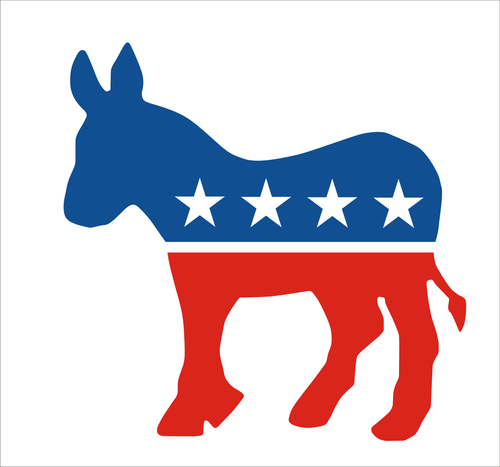This blog is a adjusted transcript from our podcast, The Economic Impacts of the Next Presidency.
To read about Donald Trump’s tax plan, click here.
Insights into Hillary Clinton’s Tax Plan
In the last blog we dove into Donald Trump’s plan. Let’s talk about Hillary Clinton’s tax plan for a little bit. There’s not as much, but even with Donald there was probably some details that weren’t there. Hers is even more ambiguous and lacking any details.
There are lot of bullet points but none of the bullet points are very specific. They’re just sort of talking points that, if you were in a debate, these are the types of things that you’re going to talk about. If we take a step back, what’s the underlying policy? What’s the objective, Donald’s being, “Let’s grow, let’s simplify business, let’s simplify the tax code and, as more of us are paying some tax, that’s going to raise the revenue for the government, in general.”
Well, if we look at the other side with Hillary, in terms of policy it’s the idea of “That’s going to take too long. We need something that’s quicker. We need immediate revenue.” Immediate revenue, immediate relief–and that starts at the top. “We’ve gotta tax the top and we’ve gotta force that down to middle class”.
If you look at her constituency–the one she really appeals to–that’s what they look for– If they were to choose between taking some for free as a handout as opposed to going out and working for it, they would take the former. That’s been proven. You look at the money that’s been lost because of the extension of unemployment benefits, right? “No, you don’t hafta pay this; we’re gonna pay this for another 18 months”. It just prolongs a person’s ability to go out and get a job. But, also, psychologically, right? If a person loses a job for two or three months, it’s still on their mind; they know they have to go do that. But if the option exists that they don’t have to work for another year, year and a half, they don’t do it. Right?
And we’re speculating, obviously. All this is, is conjecture! Even Trump’s–we don’t know what the heck he’s going to do. Still, in the end they have to go through proper channels and get it passed through Congress. But, looking at Hillary and looking at what, most likely, she is gonna do, it’s really putting the onus on government to solve problems as opposed to people.
Now, Trump is already going to do that to an extent. He’s already said, “I’m going to do this. I’m going to build a fence,” right? It’s like they take things on themselves to solve problems. I’d rather let free market work that out. That’s my beef with both sides is they take the same money and they just use it differently. They’re still taking money. There’s still a taking but let the market solve the problems.
Let’s go to some other points? I know they’re vague, but there’s a lotta things she talked about. There’s a lot of providing tax relief for families and I think this is consistent between Hillary Clinton and Bernie Sanders. I think there’s some attempt to appeal to younger people–the millennials, especially. We look at the population of each demographic–the millennial demographic is the biggest of all! So there’s definitely some attempt to appeal there, in terms of providing relief for college education, either making that free or significantly subsidized. Helping out with student loans would most likely be a part of that.
There’s some talk about “unleashing small business growth”, so everything is sort-of directed towards middle class, millennials, kind of students. Like you said, maybe they’re not part of the work force quite yet and don’t know what it feels like to work and to have to pay taxes. So they’re still very receptive to this idea of, “Hey, that appeals to me. That could make my life easier. I’m going to take the path of least resistance.” There’s some definite attempt to appeal to that.
I think you really have to look at the flows of money and, also, the clearly-set definitive guidelines or plans because that is what’s going to allow people to get off the fence and invest. It’s going to allow corporations to do this, that and the other, but if that doesn’t happen, if there isn’t some something that gives some certainty in regards to what’s going to happen in the future as far as monetary policy (which we haven’t even gotten into), but fiscal policy, I just don’t see that anything is gonna get better.
In the end, I think we’re the Titanic, in a sense because who knows what’s going to happen? I have my speculations which we can talk about some other time, but if they both get in, there’s just a lotta stuff comin’ down the pipe which is kinda scary. More with her, I think it’s going to get there quicker. I would really look at where is the money going to flow. If it’s going to flow to lower class and middle class? There’s just not many problems that’ll be solved by that. If it goes to businesses, the corporations? Money flowing there, hopefully, will increase economic activity. In the end, who the heck knows? Basically, the discussion’s important. Something’s going to happen, right? I guarantee you, something will happen.
For me, it’s good to just kinda sit back and watch. I’m a sports fan: I love football, I love baseball. I love basketball. Sports is fun because you can watch and you get passionate, but at the end of the day as you walk out of the stadium, maybe you’re a little bit frustrated your team lost, but there’s always next year. Here, it’s not just sitting on the sidelines and passably observing, “Gosh darnit, my team didn’t win.” Something’s going happen. This has a significant impact on lives. It’s a whole lot more complicated than just a sporting event.
Life is gonna change; it’s gonna be awesome. I think we’re living in an amazing time! But, at the same time, you gotta pay attention. If you’re not paying attention, you’re not gonna be prepared, it could be crazy. But, we’re here to just say, “pay attention”. Check the economic activity, you may want to listen to what’s going on.








